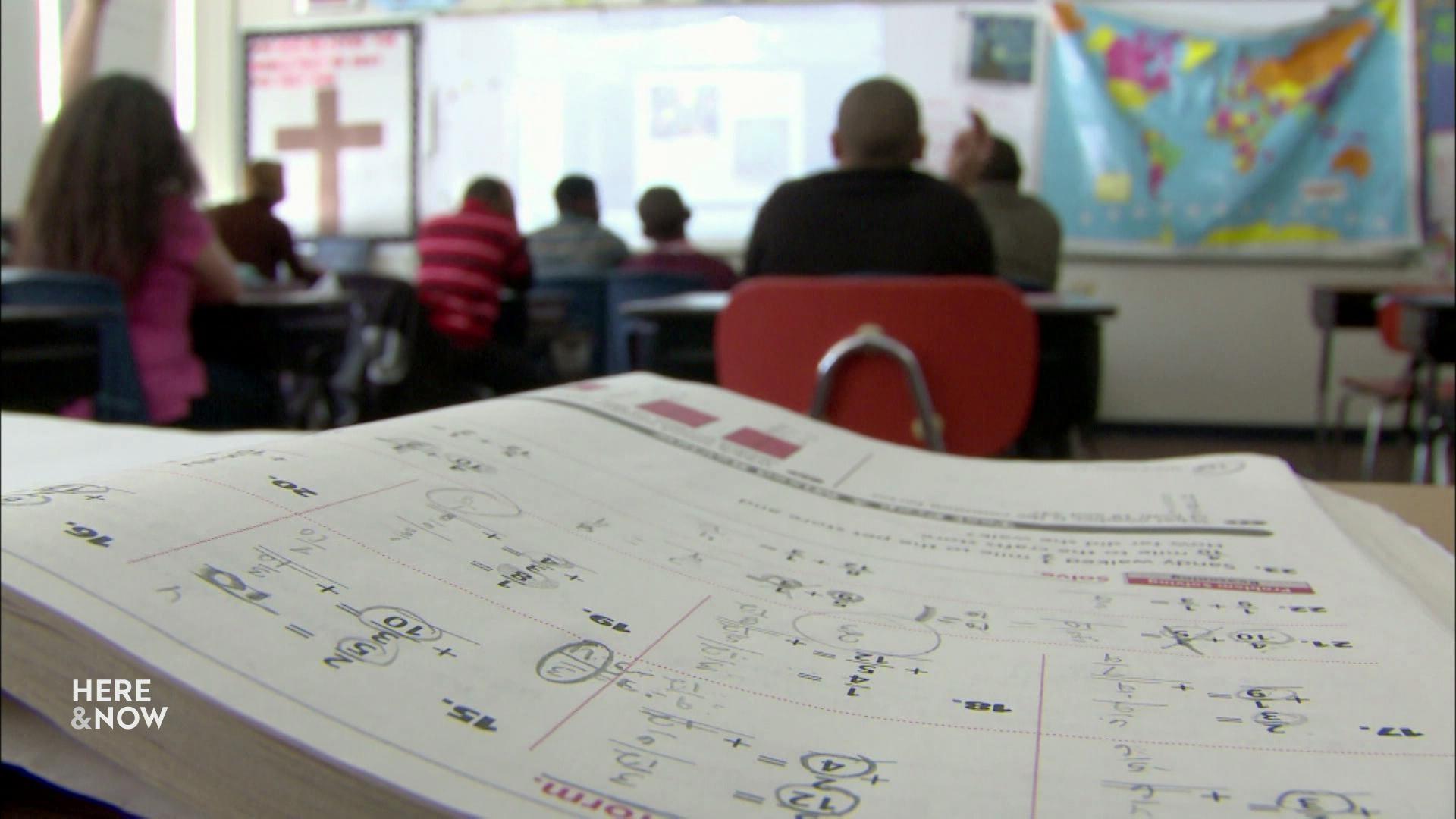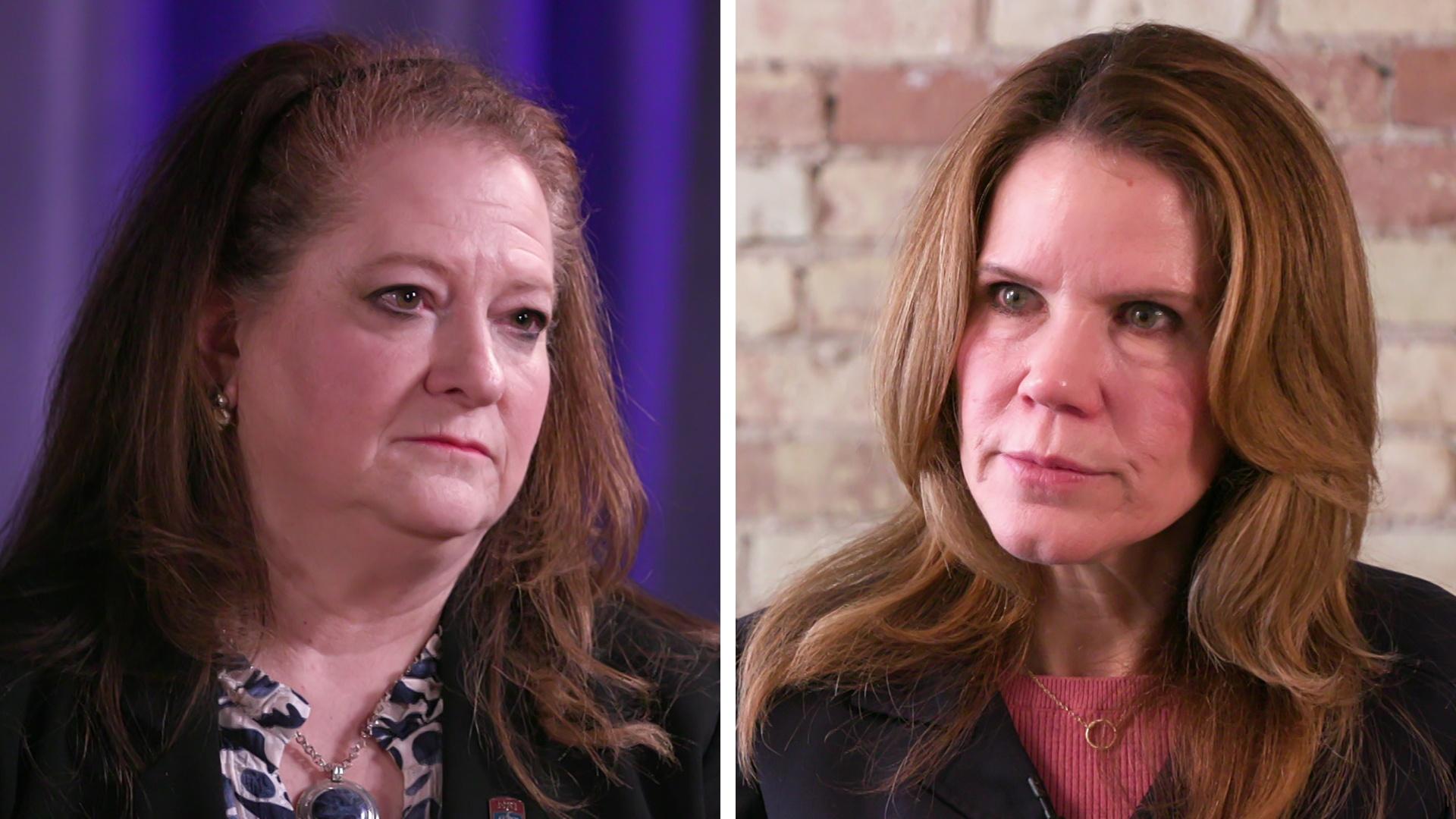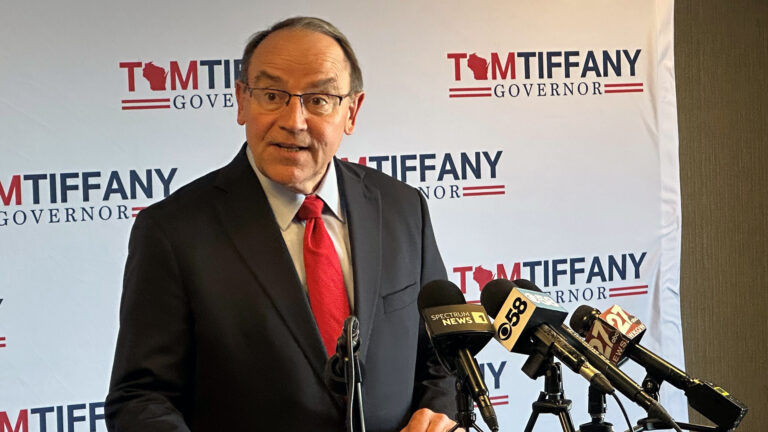The ongoing clash over using ballot drop boxes in Wisconsin
Absentee ballot drop boxes are a focus of big political and legal fights in Wisconsin — banned by the state Supreme Court in 2022 and reinstated in 2024 — leading to fewer being used around the state.
By Steven Potter | Here & Now
October 18, 2024
“We believe that the more communities that use the drop box will have better turnout and offer more people to participate in our democratic process,” said voting rights advocate Sam Liebert.
“I think that a ballot drop box does create opportunity for those that want to circumvent the law,” said Dodge County Sheriff Dale Schmidt.
The use of ballot drop boxes has been on and off and on again over the last few years in Wisconsin. These boxes were the target of court cases and wide-ranging conspiracy theories since they became popular during the pandemic and heavily used during the presidential election of 2020.
The boxes themselves are simple. They resemble a mailbox. They’re locked, bolted to the ground and are usually placed near government buildings like a city hall, public library or fire station. Their function is to collect absentee voting ballots before Election Day.
Voter outreach advocates like Liebert, who is the Wisconsin director for the voter advocacy group All Voting Is Local, say that ballot drop boxes are part of opening the elective process to as many voters as possible.
“A lot of people that we’ve talked to who like having absentee ballot drop boxes are folks especially like single parents, people who maybe like third shift workers, nurses, things like that,” Liebert said. “But at the end of the day, there are large swaths of our population that either can’t or don’t want to vote on Election Day. Maybe they request their ballots too late and so maybe they don’t have enough time to return that in the mail. And so a ballot drop box makes the most sense.”
Those opposed to ballot drop boxes say that their use raises too many questions around security and counterfeit voting.
“I think if you look back to the 2020 election, we had, whether it was legitimate or not, the perception that drop boxes were creating fraud,” Schmidt said. “Even if there’s a perception of fraud, it can cast doubt on the entire election system.”
Before the August primary election, Schmidt sent three municipal clerks in Dodge County a letter questioning the security of their ballot drop boxes.
“It wasn’t necessarily to say you can’t have a drop box. In fact, I told them that’s the right to do that. My preference is that they not have them until they have those processes in place,” the sheriff said. “And at the end of the day, those three clerks — the only three in the county that were considering it — all decided it was in the best interest of their municipality to not have the drop box.”
Around Wisconsin, a number of other municipal clerks have also decided against letting their voters use drop boxes, including several in the southeast corner of the state – in Milwaukee and Waukesha counties – where voter turnout is always high and always heavily scrutinized.
“The municipal clerk has the authority over the drop box. They will decide whether it’s appropriate to use in their community and how to use them,” said Elena Hilby, the clerk for the city of Sun Prairie. She’s also the president of the Wisconsin Municipal Clerks Association.
Hilby explained why a clerk may choose not to use a ballot drop box.
“It could be political pressure. It could be that they don’t have the infrastructure or they don’t have a way to secure it. It could be that their communities don’t need it. They don’t require it,” she said.
In late September, Wausau Mayor Doug Diny posed for photos while carting the city’s only drop box away, saying he was “taking a stand” by removing the box – even without the permission of the city clerk.
He later returned the box and the clerk bolted it to the ground outside city hall. The Wisconsin Department of Justice is investigating the incident.
Conflicts over ballot drop boxes began when the then-conservative majority Wisconsin Supreme Court ruled in 2022 that the boxes were illegal. But in July 2024, now with a liberal majority, the court ruled drop boxes could again be used in elections.
The Wisconsin Elections Commission has offered guidance on drop box security and ballot collection. But how many are in use for the 2024 election?
Elections Commission Administrator Megan Wolfe said there are an estimated 78 boxes across the state. That’s compared to 500 absentee ballot drop boxes used during the 2020 election.
Liebert is also trying to track that figure.
“Our organization is tracking about 60 or 70 municipalities that have decided not to use drop boxes,” he said.
Two communities that will certainly be using ballot drop boxes in 2024 are the state’s two largest cities – Milwaukee and Madison.
Paulina Gutiérrez is the executive director of the Milwaukee Election Commission. She said the placement of the city’s 15 ballot drop boxes at libraries and city hall was very deliberate.
“For the most part, the cameras have always been there as part of the Milwaukee Public Library and in our city hall complex, in our operation center — we just installed the ballot drop boxes where there is a camera. So, they’ve been there — they’ve always been under 24 hour surveillance,” Gutiérrez said. “I think it helps to give the voters some confidence in what we’re doing. And if there is a situation where we need to investigate, we have that evidence.”
With Wisconsin being a key battleground state for the presidential election, some groups have discussed plans for monitoring or or even videotaping people using ballot drop boxes.
Gutiérrez said that’s allowed but also warns these would-be watchers.
“We don’t mind having observers. I think what’s important to know is that if an observer is disrupting the process, we will act swiftly and immediately and contact law enforcement if we have to,” she said.
 Passport
Passport











Follow Us